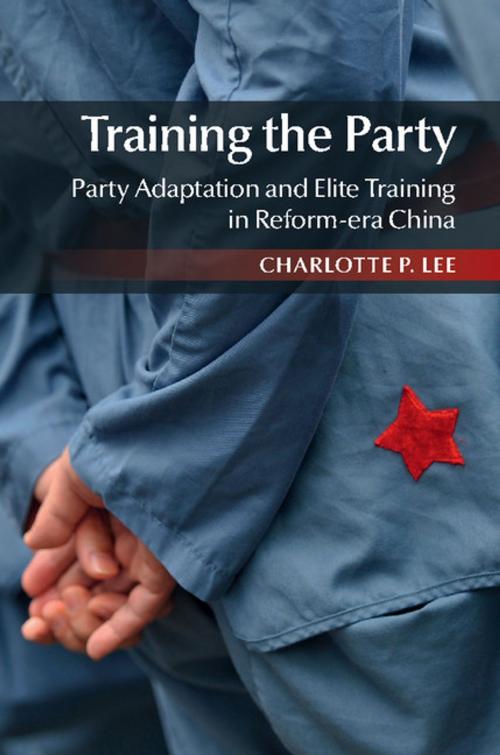Training the Party
Party Adaptation and Elite Training in Reform-era China
Nonfiction, Social & Cultural Studies, Political Science, International, Social Science| Author: | Charlotte P. Lee | ISBN: | 9781316349366 |
| Publisher: | Cambridge University Press | Publication: | July 2, 2015 |
| Imprint: | Cambridge University Press | Language: | English |
| Author: | Charlotte P. Lee |
| ISBN: | 9781316349366 |
| Publisher: | Cambridge University Press |
| Publication: | July 2, 2015 |
| Imprint: | Cambridge University Press |
| Language: | English |
Charlotte P. Lee considers organizational changes taking place within the contemporary Chinese Communist Party (CCP), examining the party's renewed emphasis on an understudied but core set of organizations: party-managed training academies or 'party schools'. This national network of organizations enables party authorities to exert political control over the knowledge, skills, and careers of officials. Drawing on in-depth field research and novel datasets, Lee finds that the party school system has not been immune to broader market-based reforms but instead has incorporated many of the same strategies as actors in China's hybrid, state-led private sector. In the search for revenue and status, schools have updated training content and become more entrepreneurial as they compete and collaborate with domestic and international actors. This book draws attention to surprising dynamism located within the party, in political organizations thought immune to change, and the transformative effect of the market on China's political system.
Charlotte P. Lee considers organizational changes taking place within the contemporary Chinese Communist Party (CCP), examining the party's renewed emphasis on an understudied but core set of organizations: party-managed training academies or 'party schools'. This national network of organizations enables party authorities to exert political control over the knowledge, skills, and careers of officials. Drawing on in-depth field research and novel datasets, Lee finds that the party school system has not been immune to broader market-based reforms but instead has incorporated many of the same strategies as actors in China's hybrid, state-led private sector. In the search for revenue and status, schools have updated training content and become more entrepreneurial as they compete and collaborate with domestic and international actors. This book draws attention to surprising dynamism located within the party, in political organizations thought immune to change, and the transformative effect of the market on China's political system.















